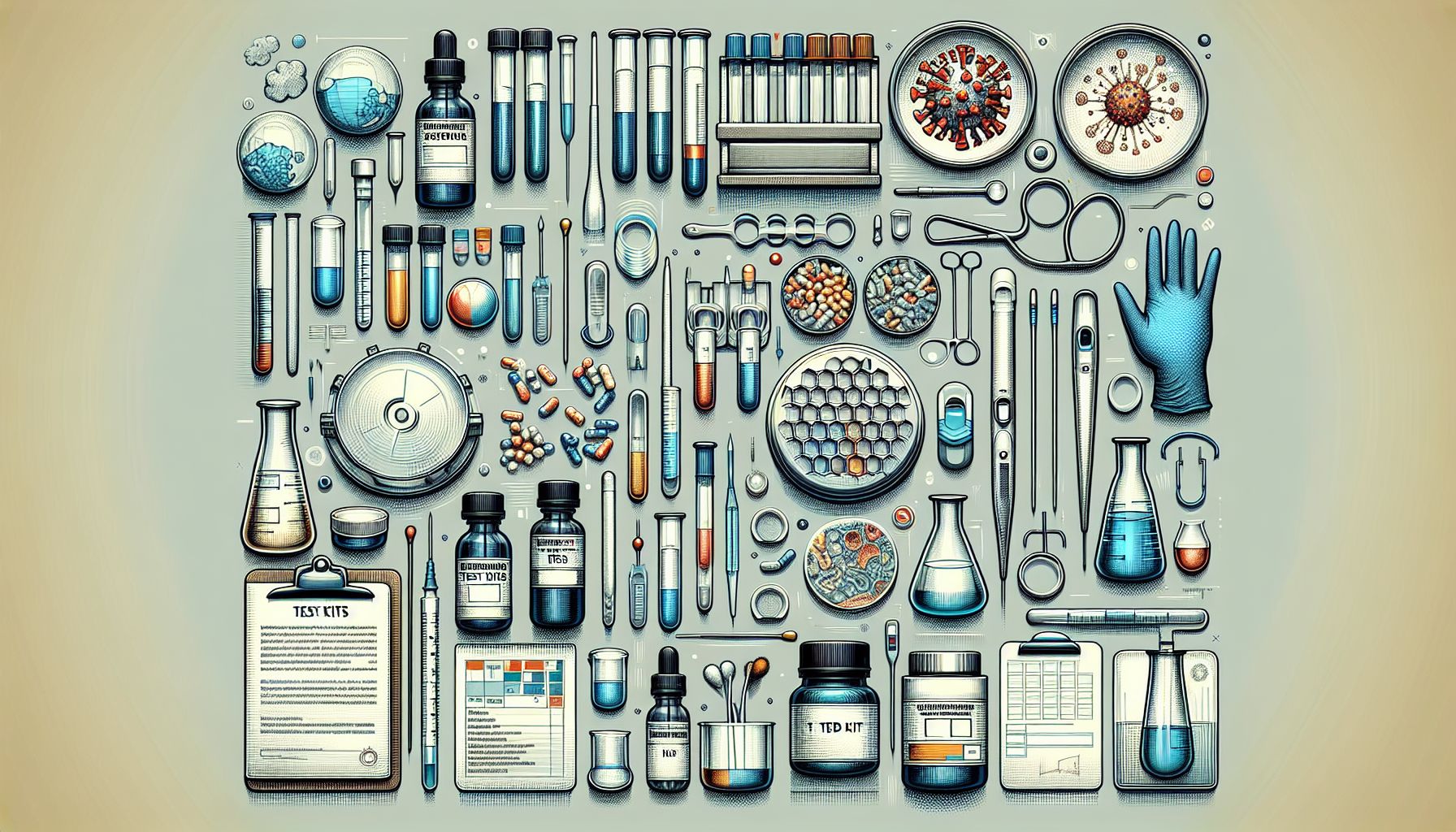
Test Kits: Your Essential Guide to Home and Professional Use
In recent years, the demand for test kits has surged, becoming an integral part of both personal healthcare and professional medical practice. Whether for diagnosing illnesses, monitoring health conditions, or conducting research, test kits provide a convenient and effective solution. This comprehensive guide delves into what test kits are, how to use them, and insights from medical professionals.
What Are Test Kits?
Test kits are specially designed tools that allow individuals and healthcare professionals to collect samples and test for specific health indicators. These kits can range from simple over-the-counter products to more complex kits used in laboratories.
Types of Test Kits
1. Diagnostic Test Kits: Used to detect diseases or conditions, such as COVID-19, influenza, or diabetes.
2. Blood Test Kits: Designed for checking cholesterol levels, blood glucose levels, or other blood-related health metrics.
3. Genetic Test Kits: Used to analyse DNA and genetic predispositions.
4. Drug Test Kits: Employed to detect the presence of drugs or alcohol in the system.
5. Pregnancy and Fertility Test Kits: Utilised to confirm pregnancy or track fertility cycles.
6. Allergy Test Kits: Help in identifying allergic reactions to various substances.
How to Use Test Kits
Using test kits generally involves a few straightforward steps, though specific instructions can vary based on the type of test and manufacturer. Always follow the instructions provided in the kit for accurate results.
General Steps to Using Test Kits:
1. Read the Instructions: Begin by carefully reading the instructions provided with the kit.
2. Collect the Sample: Depending on the test, this could be a nasal swab, saliva sample, blood sample, or urine sample.
3. Follow Testing Procedure: Use the provided materials to conduct the test as per the guidelines.
4. Interpret Results: Compare the results to the interpretation guide included in the kit.
5. Consult a Professional: For any uncertain or positive results, follow up with a healthcare provider for further advice.
Benefits of Using Test Kits
– Convenience: Test kits offer the ability to conduct tests at home, saving time and often reducing the need for a clinic visit.
– Privacy: They allow individuals to carry out tests in the privacy of their own homes.
– Speed: Many test kits deliver quick results, which can be crucial in timely diagnosis and treatment.
Mechanism of Action
Test kits function by detecting specific markers or substances in the sample provided. For instance:
– Antibody Tests: Detect the presence of antibodies in the blood, indicating exposure to a virus.
– Antigen Tests: Identify specific proteins from a virus or pathogen.
– Molecular Tests: Utilise techniques such as PCR to detect genetic material from a pathogen.
Indications for Use
Test kits are indicated for use in various scenarios, including:
– Suspected infection (e.g., COVID-19, flu)
– Routine health monitoring (e.g., blood sugar levels)
– Personal health insights (e.g., genetic predispositions)
– Workplace drug testing
Possible Side Effects and Precautions
While test kits are generally safe, there may be minor side effects or considerations, such as:
– Discomfort during sample collection (e.g., nasal swabs)
– False positives/negatives due to improper use
– Allergic reactions to materials in the kit (rare)
Always ensure that you use test kits as directed and consult with a healthcare professional if you experience any adverse effects.
Expert Insights
Dr. Emily Carter, a leading pathologist, states: “The rise of test kits has revolutionised patient care, making diagnostics more accessible. However, it is crucial for users to understand that these kits complement but do not replace professional medical advice.”
Pharmacist John Ellis adds: “While test kits are highly reliable, the accuracy depends significantly on following the instructions and using the kit within its expiry date.”
Recommendations for Use and Dosage
– Follow Instructions: Always adhere to the specific instructions provided with the test kit.
– Do Not Overuse: Avoid repeated use of the same kit for multiple tests; each test should have a new kit.
– Consult Professionals: Always seek professional advice for interpreting complex results or when in doubt.
For purchasing reliable and certified test kits, we recommend visiting our site for a comprehensive range of products. Check out our selection at our online store.
Final Thoughts
Test kits are invaluable tools in modern healthcare, offering convenience, speed, and privacy. By understanding how to use them effectively and responsibly, individuals can take proactive steps in managing their health. Always remember to consult healthcare professionals when interpreting test results or when health concerns arise.
